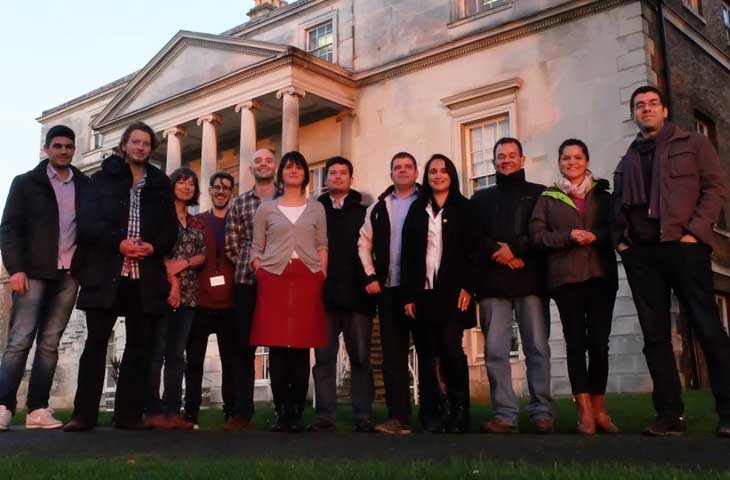Centre for Research in Ecology share world-leading research on protecting drinking water
- Tuesday, December 15, 2015
Life Sciences researchers are studying freshwater ecosystems with academics in Brazil, in order to help protect valuable sources of drinking water in the country.

Professor Anne Robertson and three PhD students from the Department of Life Sciences, went to Southern Brazil in September to study ecosystem data alongside the Brazilian team, and visited three ecological sites. One of these is the Lagoa di Peri, an important drinking water source for the city of Santa Catarina, where the water quality is being affected by rising quantities of a toxic cyanobacteria, a type of algae. The Roehampton team shared advanced data analysis techniques for studying aquatic ecosystems, building research capacity in Brazil, and in turn learnt about the ecology of coastal lagoons.
The team is sharing their research techniques with ecology academics from the Federal University of Santa Catarina in south-eastern Brazil, in a project jointly funded under the UK’s Overseas Development Agency (ODA) via the Newton Fund and the Brazilian research agency CONFAP.
Professor Anne Robertson said: “It is very valuable to undertake research that has a duel benefit, both in the advancement of knowledge and in improving the lives of people around the world. This partnership offers benefits for both countries now and into the future and ultimately students at both universities.”
On the return exchange, seven academics from the Federal University, led by Professor Mauricio Petrucio, visited Roehampton for further collaboration; including data analysis, seminars and discussion of future joint funding applications. The two groups also prepared two joint posters arising from the analysis of data from the Lagoa di Peri. These posters were presented at the British Ecological Society winter meeting in Edinburgh.
To find out more about how you can study about techniques for improving lives around the world and explore ecosystems, visit our Life Sciences department page.
Find out more about the Newton Fund.
Find out more about the OED.
